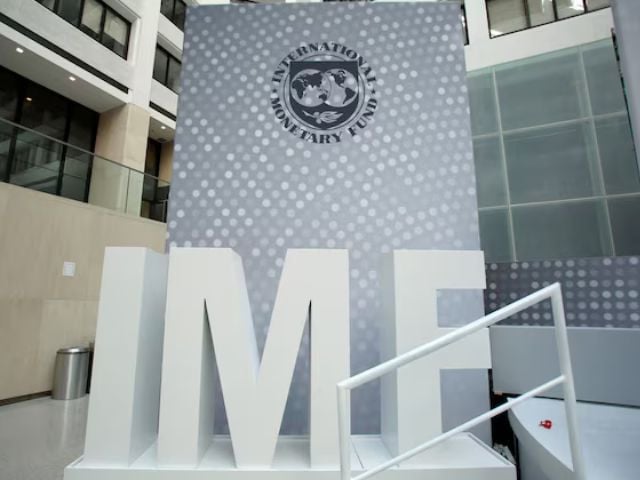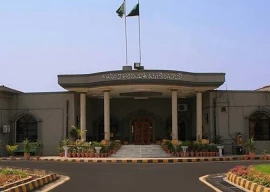
The International Monetary Fund's (IMF) decision to postpone the approval of the $7 billion bailout package has called into question Pakistan's leaning towards the West and also put the credibility of its policymakers at stake.
The IMF board's meeting was conditional to giving credible assurances for meeting the $26.4 billion external debt repayment requirements for this fiscal year, which the government could not secure within the due time, according to the government officials.
The government was struggling to get a condition-free rollover of $5 billion Saudi debt, while the Chinese – holding the key to roll over $7.9 billion worth cash deposits and commercial debts, also have their own grievances, it has emerged.
The government was hopeful to receive the stamp of approval by the Executive Board of the IMF on August 30th for the $7 billion Extended Fund Facility (EFF). Islamabad had reached the staff-level agreement last month on the condition that it would fill the financing gap with the help of the bilateral and multilateral creditors.
"We were told a few days ago that the IMF board would not take up Pakistan's case on August 30 after the external financing gap could not be bridged," a senior Finance Ministry official said on Tuesday.
He said that the reason behind the postponement of the meeting was the unfilled $2 billion financing gap and a delay in rollover of a major portion of the $12 billion cash deposits. The $3.9 billion Chinese commercial banks loans were also not rolled over. So far, only the United Arab Emirates (UAE) has rolled over $1 billion cash deposit.
Jameel Ahmad, the governor of the State Bank of Pakistan (SBP), had said last week that Pakistan's external debt repayment requirements for the current fiscal year were $26.4 billion, including $16.4 billion rollovers of cash deposits and foreign commercial loans.
The Express Tribune received the information in early August that the IMF had delayed the approval of Pakistan's bailout package to September. Finance Minister Muhammad Aurangzeb was contacted on August 6th to confirm whether the global lender had postponed the approval of the loan. He had categorically stated that there was no delay and the IMF board would approve the programme by end of August.
He further said that three bilateral creditors had agreed to roll over the $12 billion debt for one year. The finance minister now said that the progress was being made towards securing the IMF board approval in September. The sources told The Express Tribune that the IMF had not yet given a date for the approval of the programme in September.
The coalition government took many unpopular decisions for the sake of the $7 billion three-year programme, including imposing a record Rs1.8 trillion in new taxes and increasing the electricity prices by up to 51%. It was also betting on the US support for securing the programme.
The latest development has now called into question Pakistan's foreign policies priorities and the credibility of its policymakers. Pakistan was leaning towards the West in the hope of getting a favourable IMF bailout package.
The sources said that every bilateral creditor had its own issues to settle and the country was stuck in the middle. They added that Pakistan's reliance on the United States to secure the IMF package was not yielding the results.
United States Assistant Secretary of State for South Asia Donald Lu had also said a few days ago that Chinese investment in Pakistan was a past. But despite leaning towards the West, the country still needed the Chinese generosity to remain afloat.
The Ministry of Finance said on Tuesday that for the fiscal year 2024-25 the federal government's estimated gross financing needs were Rs32 trillion, including foreign debt repayments. These Rs32 trillion needs were exclusive of the central bank-related obligations.
The Finance Ministry's borrowing plan is heavily contingent upon the timely approval of the IMF programme and generosity by China to roll over its nearly $7.9 billion debt in the shape of cash deposits of $4 billion and $3.9 billion in foreign commercial loans.
The central bank's debt stands at $8.8 billion or Rs2.6 trillion. The $3.7 billion debt of the UAE, $4.2 billion Chinese trade finance facility and $900 million maturing IMF debt are to be settled by the central bank, which in rupee terms equal to Rs2.6 trillion.
It seems that getting timely rollovers of the foreign loans may not be easy this time for the government, which is struggling to mend its economic ties with China. Beijing has given $4 billion in cash deposits, $3.9 billion in foreign commercial loans and $4.2 billion in trade finance facilities.
All these lending pipelines are maturing within this fiscal year and it will be very challenging for the finance minister to secure timely rollovers.
The Finance Ministry further stated that the government plans to roll over the bilateral deposits from China amounting to $4 billion and Saudi Arabia amounting to $5 billion. It did not mention the UAE debt, which is booked on the central bank's balance sheet.


1724229921-0/Untitled-design-(7)1724229921-0-165x106.webp)





















COMMENTS
Comments are moderated and generally will be posted if they are on-topic and not abusive.
For more information, please see our Comments FAQ